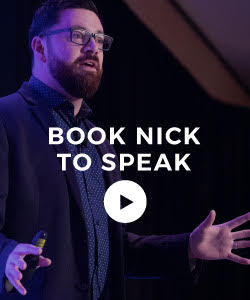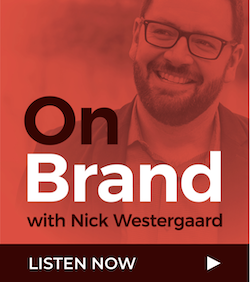In the wake of a luke-warm reception to its IPO and criticism from the BBC that its ad platform is little more than a scam, Facebook and its one billion active users remain a primary focus for the social media and internet marketing world. Facebook offers powerful ways for businesses to deliver highly relevant messages to targeted groups as well as connect directly with individuals to build brand equity.
Like all competitive branding and advertising landscapes, effectively navigating and benefitting from Facebook requires a strategic, yet flexible, plan. If you’re considering investing time and money on Facebook ads, here are some pointers to make the most of Facebook (without ads) and determine if Facebook ads are the right direction for your business.
Understanding Facebook Paid Advertising
If you promote your business on search engine platforms using pay-per-click (PPC) advertising, your first instinct might be to duplicate those ad campaigns on Facebook’s advertising platform. This is definitely feasible – the format of ads on search engine platforms and Facebook is similar. And using the creative you already have makes sense. However, consider the context each platform offers.
When your ads appear on a search engine platform, it’s because the user is purposefully looking for the products or services you offer. Search engine users already know what they want, and they’re actively seeking it out. They’re already primed to pay attention to your ads, and they might even be prepared to make a purchase. On the other hand, Facebook users are connecting with friends — playing games, updating their status, sharing pictures and videos. They’re likely not looking for your business or service, and they’re probably not prepared to make any purchases (unless you’re selling chickens in the Farmville market). Instead, they’re developing their friendships.
The key difference between advertising on search engines and advertising on Facebook is the users’ state of mind. Search engine users are focused on gathering information. On Facebook, those same people are focused on establishing and building relationships. Understanding this difference is critical to forming a successful strategy.
To effectively promote on Facebook, focus on:
- Building brand value and loyalty
- Establishing strong relationships that will lead to sales or referrals
- Addressing customer complaints/problems (if customers bring these up)
Keep in mind that Facebook is not really a selling platform. It is not well suited to making sales or moving product. The power of Facebook lies in the ability to build a strong brand, develop and maintain customer relationships, and grow brand loyalty.
Establish Your Presence
Before you dive in to Facebook ads, you will need to have a Facebook account and a Facebook page for your business. Build your fan base by offering engaging and relevant content. A variety of post-types, including text, images, and videos will help attract and retain fans. To grow your fan base, encourage customers on your website or in your store to visit your Facebook page, and vice versa. You might also consider offering exclusive promotions to customers who “like” your Facebook page.
One advantage of advertising on Facebook is that you can target your fans’ friends. According to a study conducted by the Pew Research Center, the average number of friends a Facebook user is about 230. Since friends have similar interests, building your fan base provides you the opportunity to reach a large network of users who have a strong potential to be interested in your business.
A strong fan base is a valuable tool. Let’s look at an example. Imagine you create your business’ Facebook page and ask 15 customers to visit your page. If seven of those customers visit your page and three of those customers “like” your page, you would instantly have access to almost 700 people who are more likely to be interested in your business than the typical Facebook user.
It’s true that advertising will probably help build your fan base, but earning fans before you advertise will greatly augment your ad campaign, and at no cost to you.
Reach a Broader Audience
Once you have a sufficient number of Facebook fans and are updating your content with some regularity, you’re ready to think about advertising. If you’re wondering what number of fans is sufficient, there’s no definitive number. Think about the size of your business, your target audience, and how many Facebook users are relevant to your business. Even if you have a lot more fans than you imagined, chances are there are still plenty of relevant Facebook users that you haven’t reached. Advertising will help you connect with those users.
If you’re still thinking about re-purposing your search engine ads, that’s ok. As a recycler myself, I recommend using those ads as a jumping-off point for your Facebook ads. Remember, Facebook is more about building relationships, so search engine ads aren’t as relevant, and Facebook offers much more targeted ways to reach your audience than other platforms.
In addition to targeting by more conventional means, like age and gender, Facebook ads can be targeted based on interests. Facebook users can declare their interests by adding it to their profile, “liking” pages, or joining groups. Interests can range anywhere from “food” to “fighting zombies.” This means you can tailor your message to highly specific groups of people, so your ads are more engaging.
Video and picture ads will gain more attention, especially if they tell a story. Remember, Facebook users are focused on relationships.
Start Small
As with all new endeavors, it never hurts to test the waters. If you’re new to Facebook ads (or PPC ads in general), start small with the potential to scale up. You can always increase your budget, but you can’t get back the money you spend. Determine your budget with your target audience and competition in mind. More competitive industries will require higher bids and a larger budget. Get creative with your ads and try out different methods and combinations of targeting.
What do you think? Is spending money on Facebook advertising a good fit for your brand? Or are you already using their ad network. If so, what kind of results are you seeing? We’d love to hear in the comments below.









